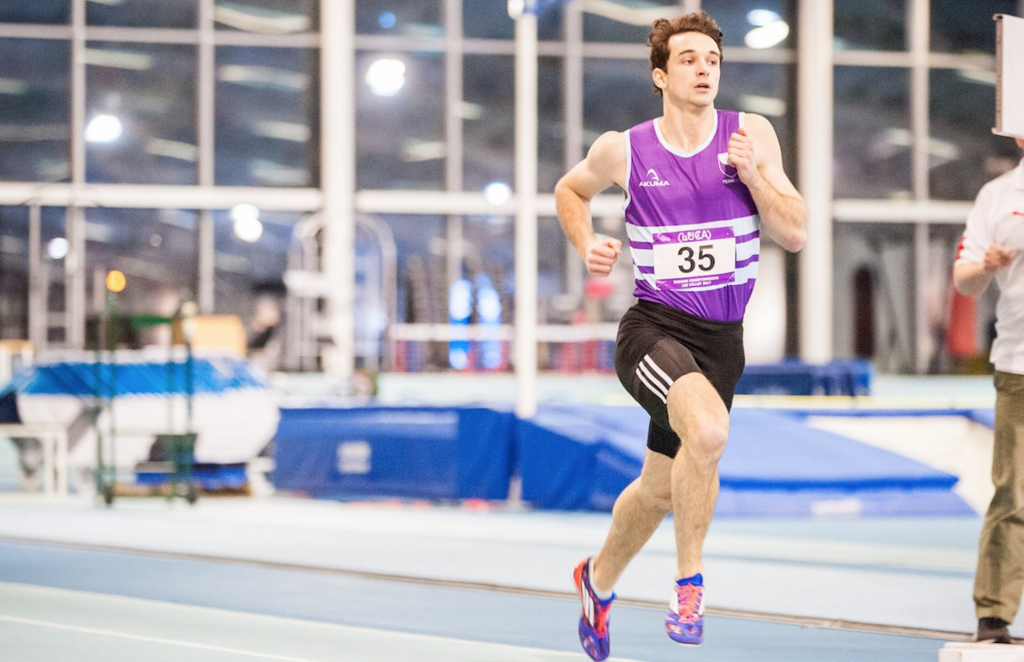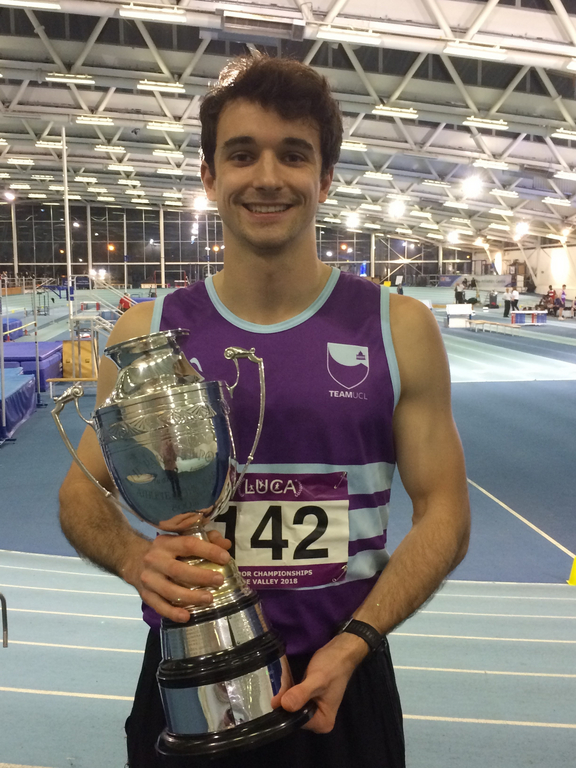Last year I was asked, by somebody applying to the same Neuroscience PhD programme that I am on, whether they would be able to keep up training for and playing sports once they started the PhD, or whether they would have to give it all up. Happily, I could reassure them that, while it can be difficult to train for a high-level sport alongside academic studies, it is far from impossible. Certainly, it takes a lot of planning and organisation but, equally, I feel that making time for sport in my life has made me a better researcher because it encourages me to continually seek improvement while also providing a good work-life balance.
I will admit I do not make things easy for myself - I compete nationally in two sports, Modern Pentathlon (which itself comprises running, swimming, target shooting, fencing and show-jumping) and Athletics (in which I run the 800m), leaving me with something of a jigsaw puzzle of various training sessions to fit into my schedule. But because of this, I have learned from a young age how to manage my time to be as efficient as possible, both at academic work and in my sports training.

To successfully combine academics and sport requires a mindset that ought to be familiar to any sportsman or woman: that is, a determined and level focus on your desired outcomes. Everything else, your training, lifestyle and daily routine, should then be organised around trying to achieve these goals (and eschew common, but useless, proxy measures of success such as the number of hours worked or miles run each week). Taking this approach, I find my sports training and academics can support each other. For example, I know that I work best in bursts of around an hour or two at a time and that after much longer than that my productivity really falls off a cliff. Going out for a run at lunchtime is therefore not just a matter of trying to shoehorn a training session into my day, but a vital activity that provides me with energy and refreshes my attention, so that I can work more effectively again in the afternoon. Similarly, the knowledge that I usually only have an hour to get each training session done before I need to get back to work forces me to focus on those aspects of my training that will give the biggest improvements – unlike many swimmers for example, I avoid doing easy long-distance work and focus almost exclusively on technique and race-pace swimming instead, because I know I already have good endurance and cardiovascular condition from running.

To successfully combine academics and sport requires a mindset that ought to be familiar to any sportsman or woman: that is, a determined and level focus on your desired outcomes.
Applying this focussed way of thinking also requires some hard decisions when working out how to manage sport alongside academic commitments. Often this means that I will work in the evenings or at weekends. But this is also, for me at least, one of the big advantages of doing a PhD, in that you are given significant autonomy over how you choose to work – of course it depends on the research that you are doing and supervisor you are working under but, in general, what matters is that the work gets done, not when it is done. In fact, I find that doing some work at weekends naturally suits me – it is only now that I am living with friends who are in office jobs, that I have realised that this is somehow unusual! Of course, I find my subject intellectually engaging and am encouraged by feeling that I am working towards my goals; but more than that, being able to train regularly during the week means that I still want to work at the weekends – my lifestyle as a whole feels balanced and sustainable.
Undoubtedly, I did not have this all worked out from the very beginning. In fact, it probably took until the end of the first year of the PhD for me to really start to feel settled in London, having initially struggled to work out how to fit training in with a working day, and particularly around my commute. But I have been very well supported by the UCL Elite Athlete Programme, which not only provides centralised (and convenient) access to strength and conditioning coaching and physiotherapy at Bloomsbury Fitness, but also recognises how important supplementary training is, and in particular nutrition and performance psychology support. These are two aspects of my training that I had not really worked on before because it can be difficult to identify and organise these resources as an individual, and I am convinced that they have potential to produce big gains in my performance.
All in all, my experience of combining academics and sport here at UCL has been hugely positive and well worth the effort, allowing me to study neuroscience at a world-class institution while also training to the best of my abilities.
